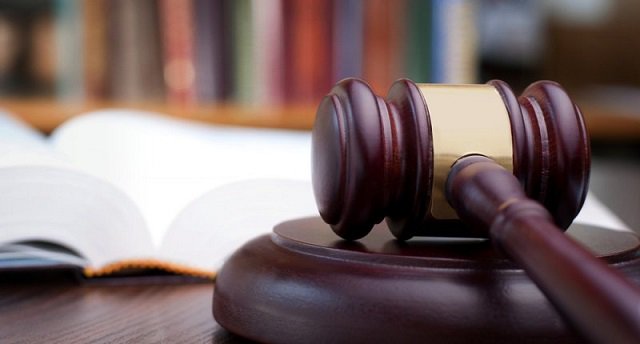
During the hearing of a petition challenging the promulgation of eight ordinances by the Pakistan Tehreek-e-Insaf government, IHC Chief Justice Athar Minallah observed that Article 89 of the Constitution empowered the president to promulgate an ordinance in times of war or national emergency.
When Additional Attorney General Tariq Khokhar quoted colonial laws to defend the federal government’s move, the IHC top judge directed him to cite the 1973 Constitution of Pakistan in arguments to satisfy the high court.
Noting that the high courts were constituted in the year 2010 through an act of the Parliament, Justice Minallah questioned whether the federal government could dissolve high courts through presidential ordinances.
The bench has sought a statement on the matter from amicus curie Babar Awan, Raza Rabbani and Abid Manto. The hearing has been adjourned till March 12.
IHC gives govt two weeks to submit reply for issuing ordinances
The petition
The petition filed by MNA Ranjha through his counsel Gillani states that as per Article 89 of the Constitution, the president is only authorised to issue ordinances when the government needs to respond to an emergency situation.
“We want the authority of the president to be explained as per Article 89,” the petition states.
According to the petitioner, ordinances can only be issued in an emergency situation and legislations cannot be made through ordinances.
“The obvious reason why the federal government rushed with these ordinances is that it did not want to meaningfully engage with the opposition in parliament,” said Gillani. “This represents a completely unconstitutional and authoritarian approach to govern and is against the spirit of our federal, democratic Constitution.”
Article 89: Power of President to promulgate Ordinances
(1) The President may, except when the 1[Senate or] National Assembly is in session, if satisfied that circumstances exist which render it necessary to take immediate action, make and promulgate an Ordinance as the circumstances may require.
(2) An Ordinance promulgated under this Article shall have the same force and effect as an Act of 2[Majlis-e-Shoora (Parliament)] and shall be subject to like restrictions as the power of 2[Majlis-e-Shoora (Parliament)] to make law, but every such Ordinance:
(a) shall be laid:
(i) before the National Assembly if it 3[contains provisions dealing with all or any of the matters specified in clause (2) of Article 73], and shall stand repealed at the expiration of [one hundred and twenty days] from its promulgation or, if before the expiration of that period a resolution disapproving it is passed by the Assembly, upon the passing of that resolution:
[Provided that the National Assembly may by a resolution extend the Ordinance for a further period of one hundred and twenty days and it shall stand repealed at the expiration of the extended period, or if before the expiration of that period a resolution disapproving it is passed by the Assembly, upon the passing of that resolution: Provided further that extension for further period may be made only once.]
(ii) before both Houses if it [does not contain provisions dealing with any of the matters referred to in sub-paragraph (i)], and shall stand repealed at the expiration of 6[one hundred and twenty days] from its promulgation or, if before the expiration of that period a resolution disapproving it is passed by either House, upon the passing of that resolution:
[Provided that either House may by a resolution extend it for a further period of one hundred and twenty days and it shall stand repealed at the expiration of the extended period, or if before the expiration of that period a resolution disapproving it is passed by a House, upon the passing of that resolution: Provided further that extension for a further period may be made only once; and]
(b) may be withdrawn at any time by the President.
(3) without prejudice to the provisions of clause (2):
(a) an Ordinance laid before the National Assembly under sub-paragraph (i) of paragraph (a) of clause (2) shall be deemed to be a Bill introduced in the National Assembly; and
(b) an Ordinance laid before both Houses under sub-paragraph(ii) of paragraph (a) of clause (2) shall be deemed to be a Bill introduced in the House where it was first laid.]


1731570357-0/elon-musk-(1)1731570357-0-165x106.webp)
-(1)1717678110-0/Kendrick-(1)-(1)1717678110-0-165x106.webp)













COMMENTS
Comments are moderated and generally will be posted if they are on-topic and not abusive.
For more information, please see our Comments FAQ